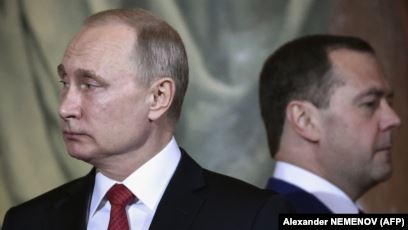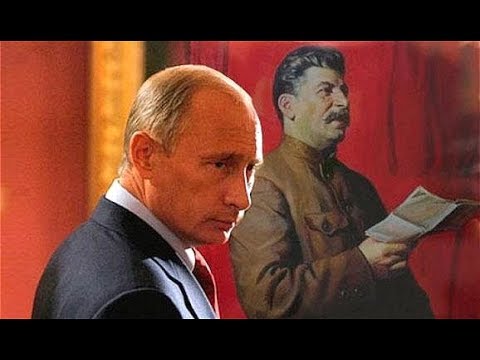President Vladimir Putin has named Tax Service chief Mikhail Mishustin as Russia’s new prime minister, the Kremlin said Wednesday.

The 53-year-old Mishustin has worked in the government since 1998 and kept a low profile while serving as the head of the Federal Tax Service since 2010.
The Russian leader made the appointment after he engineered a surprise shakeup of Russia’s leadership and Prime Minister Dmitry Medvedev submitted his resignation earlier in the day.
Putin proposed changes to the constitution that could keep him in power well past the end of his term in 2024. He emphasized that constitutional changes must be put to a vote in a nationwide referendum.
Medvedev resigned his post after Putin announced the proposed constitutional amendments. Putin kept his longtime ally in the Kremlin’s leadership structure, appointing him to the newly created post of deputy head of the presidential Security Council.
Political elites in shock
The shakeup sent shock waves through Russia’s political elites who were left pondering what Putin’s intentions were and speculating about future Cabinet appointments.
Medvedev has been prime minister for nearly eight years. After Putin’s first two terms ended in 2008, Medvedev served as a placeholder president from 2008 to 2012 and appointed his mentor as prime minister, although Putin continued to wield power. Under Medvedev, the constitution was amended to lengthen the president’s term from four years to six.
Medvedev said in televised comments that he needed to resign in light of Putin’s proposed changes in government.
Putin suggested amending the constitution to allow lawmakers to name prime ministers and Cabinet members. The president currently holds the authority to make those appointments.
“It will increase the role of parliament and parliamentary parties, powers and independence of the prime minister and all Cabinet members,” Putin told an audience of top officials and lawmakers.
At the same time, Putin argued that Russia would not remain stable if it were governed under a parliamentary system. The president should retain the right to dismiss the prime minister and Cabinet ministers, to name top defense and security officials, and to be in charge of the Russian military and law enforcement agencies, he said.
Putin for premier?
Putin has been in power longer than any other Russian or Soviet leader since Josef Stalin, who led from 1924 until his death in 1953. He will have to step down in 2024 after his term ends under the current law, which limits the president to two consecutive terms.

Observers speculated that Putin may stay in charge by shifting into the prime minister’s seat after increasing the powers of parliament and the Cabinet and trimming presidential authority.
Political analyst Dmitry Oreshkin said Putin’s speech made it clear he was pondering the move to premiership.
“Putin is advancing the idea of keeping his authority as a more powerful and influential prime minister while the presidency will become more decorative,” Oreshkin said.
In his address, Putin said the constitution must also specify the authority of the State Council consisting of regional governors and top federal officials.
Tatiana Stanovaya of the Carnegie Moscow Center said it appears as if Putin might try to continue pulling the strings as head of the council and could even shift into a new position before his term ends.
“It looks very much like Putin is preparing to leave the presidency, whether that will take place in 2024 or even earlier, and is currently trying to create a safety mechanism for his successor in case of conflict,” she wrote on Facebook. “Putin looks like he is counting on becoming the head of the State Council, which will get increased powers and become a key decision-making platform with input from the Presidential Administration, the government and the governors.”
Other possible options include a merger with neighboring Belarus that would create a new position of the head of a new unified state – a prospect that has been rejected by Belarusian President Alexander Lukashenko.
Political analyst Kirill Rogov said that Putin intends to stay in charge while re-distributing powers between various branches of government.
“Such a model resembling the Chinese one would allow Putin to stay at the helm indefinitely while encouraging rivalry between potential successors,” Rogov observed.
Putin served two presidential terms in 2000-2008 before shifting into the prime minister’s job for four years to observe the term limit. Medvedev kept his seat warm and then stepped down after just one term to allow his mentor to reclaim the top job in 2012. While in office, Medvedev raised the presidential term from four to six years.
Putin unhappy with Medvedev performance
Even though Putin continued calling the shots during Medvedev’s presidency, he wasn’t quite happy with his performance. He was particularly critical of Medvedev’s decision to give the green light to the Western air campaign over Libya in 2011 that led to the ouster and the killing of long-time dictator Moammar Gadhafi.
Medvedev’s decision to step down after one term to let Putin return to the presidency also sparked massive protests in Moscow in 2011-2012 in a major challenge to the Kremlin. Some of Putin’s associates suspected Medvedev’s aides of encouraging the protests.
In his speech, Putin emphasized the need to amend the constitution to give it a clear priority over international law.
“The requirements of international law and treaties and decisions of international organs can only be valid on the territory of Russia as long as they don’t restrict human rights and freedoms and don’t contradict the constitution,” he said.
He also said that the constitution must be tweaked to say that top government officials aren’t allowed to have foreign citizenship or residence permits.
Putin in his address vowed to encourage population growth by offering additional subsidies to families that have children.
He said that Russia would remain open for cooperation with all countries while maintaining a strong defense capability to fend off potential threats.
“For the first time in history, we aren’t trying to catch up with anyone,” Putin said. “On the contrary, other leading nations are yet to develop the weapons that Russia already has.”
(AP)

Leave a Reply
You must be logged in to post a comment.